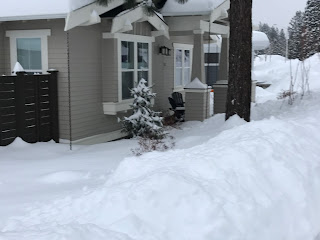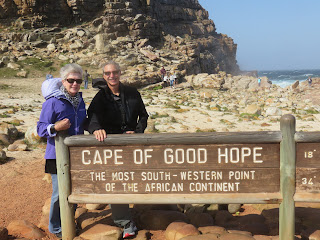50 Beds and Counting: Exploring Life After My Gap-Year (while searching for meaning and fun)
Postings about retirement, transitions, travel, gap-year, adventure, traveling with celiac, and life.
Wednesday, July 12, 2017
Check out the new blog on......Retiretravelceliacgo.wordpress.com
Look for the new blog at
https://retiretravelceliacgo.wordpress.com/2017/07/12/aaaahh-summer-is-half-over/
or sign up to follow
Saturday, May 6, 2017
Saturday, April 1, 2017
Friday, March 17, 2017
Wednesday, February 8, 2017
Moving the blog
I've decided to move my blog to Word Press.
You can find me at
www.retiretravelceliacgo.wordpress.com
Gail D.
You can find me at
www.retiretravelceliacgo.wordpress.com
Gail D.
Wednesday, January 4, 2017
Contrasts Can Be Useful
A little unpretty here but at least we can hike.
We've escaped the Oregon snow to the land of expensive cars -- Ferrari, Porsche,
Mercedes Bentley, Rolls Royce, a Maserati or two-- and faces, both male and female sporting "some age adjusting work," lips unnaturally plump, skin a little too taunt, almost frozen. One doctor here advertises "lip volume" treatment, the route to plump lips, I guess. I've lived blissfully unaware that I needed fuller lips. All this has made me a little nostalgic for the slightly frumpy, unadorned, less flashy midwesterners we left behind in Chicago. The California desert community is a strange contrast to Bend where we live. Bend is the
land of go-go athletes, active folks skiing, cycling, hiking, and more. Evenings might be
spent drinking beer, listening to music, and talking about awesome ski runs down Mt. Bachelor, all while still wearing ski caps and snow boots. By comparison, the desert
community seems old; aged men slowly shuffling as they push a grocery cart, oxygen tank in tow, others spotted in their baggy pajama bottoms dragging an oxygen tank through a restaurant. Country Clubs, golf courses, and gated communities saturate the desert landscape. Richard thinks all the gates are to keep others out but I'm wondering if they might be designed to keep people in. Happy hour deals and "Sunset Dinners," a euphemism for early bird, abound as the older crowd streams in around 5 pm for cocktails, some swapping tales of their golf swings.
Contrasts can prove useful reminders of what we have and what we like.
While not the most interesting locale, the California desert offers us a few days respite from Oregon's cold. We aren't alone in our quest for warmth as we've seen car license plates from Arizona, Kansas, Missouri, New Mexico, Oregon, South Dakota, Washington, British Columbia, Albert, Canada.
More snow has fallen since we left.
Just for the books, we slept in 23 new beds in 2016 (I never count a place we've already stayed before). But more dear is how many new places we had the pleasure of visiting in 2016 -- Hong Kong, Vietnam, Thailand, Singapore, the Great Barrier Reef, Darwin, and Brisbane, South Africa including Cape Town, two safari camps, Johannesburg, Northern Ireland, and then Glacier National
Park and Morgan Hill for a fun family wedding. Places we previously visited but revisited included Yellowstone National Park, London, Dublin, Sonoma, California, and San Francisco. Good-bye 2016. Now on to the challenges of 2017.
We've escaped the Oregon snow to the land of expensive cars -- Ferrari, Porsche,
Mercedes Bentley, Rolls Royce, a Maserati or two-- and faces, both male and female sporting "some age adjusting work," lips unnaturally plump, skin a little too taunt, almost frozen. One doctor here advertises "lip volume" treatment, the route to plump lips, I guess. I've lived blissfully unaware that I needed fuller lips. All this has made me a little nostalgic for the slightly frumpy, unadorned, less flashy midwesterners we left behind in Chicago. The California desert community is a strange contrast to Bend where we live. Bend is the
land of go-go athletes, active folks skiing, cycling, hiking, and more. Evenings might be
spent drinking beer, listening to music, and talking about awesome ski runs down Mt. Bachelor, all while still wearing ski caps and snow boots. By comparison, the desert
community seems old; aged men slowly shuffling as they push a grocery cart, oxygen tank in tow, others spotted in their baggy pajama bottoms dragging an oxygen tank through a restaurant. Country Clubs, golf courses, and gated communities saturate the desert landscape. Richard thinks all the gates are to keep others out but I'm wondering if they might be designed to keep people in. Happy hour deals and "Sunset Dinners," a euphemism for early bird, abound as the older crowd streams in around 5 pm for cocktails, some swapping tales of their golf swings.
Contrasts can prove useful reminders of what we have and what we like.
While not the most interesting locale, the California desert offers us a few days respite from Oregon's cold. We aren't alone in our quest for warmth as we've seen car license plates from Arizona, Kansas, Missouri, New Mexico, Oregon, South Dakota, Washington, British Columbia, Albert, Canada.
More snow has fallen since we left.
Just for the books, we slept in 23 new beds in 2016 (I never count a place we've already stayed before). But more dear is how many new places we had the pleasure of visiting in 2016 -- Hong Kong, Vietnam, Thailand, Singapore, the Great Barrier Reef, Darwin, and Brisbane, South Africa including Cape Town, two safari camps, Johannesburg, Northern Ireland, and then Glacier National
Park and Morgan Hill for a fun family wedding. Places we previously visited but revisited included Yellowstone National Park, London, Dublin, Sonoma, California, and San Francisco. Good-bye 2016. Now on to the challenges of 2017.
Friday, December 16, 2016
Designer Approach to Solving Human Problems
Lately, I've been reading lots of blogs on retirement and transitions in an effort to locate myself in what feels like a new time and place or phas even though I've been retired for
more than two years and in my new community just as long.
I've been enjoying the excellent site brainpickings.org with it emphasis on creativity and
ideas, writing, and reading -- activities that feed one's soul. I've continued to peruse
favorites such intentionalretirement.com and eretirements.com because each offers thoughtful, useful information. As I've been reading and pondering, I have found myself returning to the September post "Calling all Retirees" on Retired Syd's blog (retiredsyd.typepad.com). One of her readers, Walter openly commented on his dissatisfaction with retirement, how he feels lost, unhappy and unsure there is a retirement
for him. Syd put out a call to her readers for their thoughts on what might be helpful to Walter. While I empathized and sympathized with Walter's dilemma, I wasn't so clear that
suggestions from others would help him solve his problem.
The more I pondered Walter's situation, the more I came to think that he and I share the same problem. In my blog reading and researching, I happened upon the ideas Bill Burnett and Dave Evans put forth on their web site designingyour.life and in their book (one I think Walter should read) of the same name based on their wildly popular Stanford University
course.
Why do I think Walter and I share the same problem? Because our problems are human
problems. Retirement or pre-retirement is similar to any other life phase in that it can toss a
crisis or two in the way, unwanted, undesired road blocks, challenges, dilemmas, barriers,
and disease like cancer.
The retirement R and I planned for our "Go Go Years" has been shelved, we hope
temporarily because he has cancer. After too many months of PSA tests, biopsies, more
high tech biopsies, MRIs, CT and body scans, more conversations with physicians about
potency, nerve sparing procedures, and continence or incontinence then I thought I'd
participate in over my lifetime, we are traveling the path from cancer diagnosis to best
treatment which in this case will be -- surgery and then recovery.
Did we take a wrong turn on the retirement bliss highway?
Nope. This is just life and life is full of human problems. While I am a retired therapist trained to think about human issues in all kinds of ways, Burnett and Evans' "think like a designer" approach resonated with me. Some problems are static problems, like how to build a bridge or a house that are solved and then you are finished. Those are concrete kinds of problems. But life problems are "wicked problems," (a rather sinister term) that are not static, not solved one time and you are finished, but require an adaptable, flexible approach to solving for the solution criteria keep changing.
I'll add that the criteria probably change with new situations and with age.
The solution criteria for my problem have changed and I suspect the solution criteria also
changed for Walter.
For a complete explanation of Burnett and Evans' approach check out their book, blog, web
site and/or You Tube presentations. But in brief, the two of them suggest thinking and acting
like designers to solve nonstatic "wicked" problems by using three ideas -- get curious, talk to people, and try stuff. This last point, try stuff, is enormously important because action
rather than pondering is rewarded and yields an outcome.
My point is that life is not static -- it is changeable, active, moving, variable with solution
criteria that keep changing; even so, we must figure out how to go forward. Simple to state
yet possibly complex to do.
Happy holidays.
Botanic gardens in Singapore






